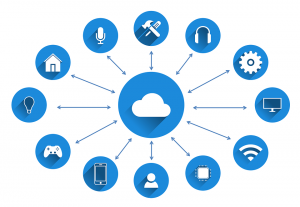David Colgan | Blog | Targeting a cleaner ERP core with SAP BTP

As businesses evolve in today’s rapidly changing business landscape, the need for flexible, scalable and efficient ERP systems is more critical than ever. SAP ECC has been a cornerstone for many organizations, supporting a wide range of business processes. However, the shift towards more advanced, intelligent but ultimately standard ERP solutions like SAP S/4HANA is creating a dilemma for companies who want the benefits of standardisation but need to differentiate their businesses against competition.
This is where SAP Business Technology Platform (SAP BTP) plays a crucial role. To stay competitive, companies must embark on this journey, ensuring that their core ERP system remains stable, reliable and agile. In this blog post we explore the critical role played by SAP Business Technology Platform (BTP) in assisting firms in commencing their journey towards a clean core, by providing a flexible innovation layer for competitive advantage and ultimately leading to successful S/4HANA transformations with lower cost of ownership and better benefit realisation.
Understanding the “Keeping the Core Clean” Philosophy
Before diving deep into the topic let us first understand the concept of a ‘clean core.’ Although attaining a fully clean core is seldom viewed as achievable within SAP ECC, the objective lies in setting off on the path towards a clean core and maintaining the clean core concept as a north star in their transformation programmes. By conducting a thorough evaluation organizations can develop a blueprint for their clean core journey. Certain components will be dealt with at the SAP ECC stage itself whereas others are better suited for resolution during the transition to S/4HANA. The primary aim here is to guide customers in focusing on maintaining hygiene and implementing best practices instead of pursuing a spotless core in the ECC phase.
Role of SAP BTP in This Transformation
SAP BTP offers a comprehensive suite of services including database and data management, analytics, application development, and integration. It assists in laying down the foundational blocks for a clean core journey via:
- Extension and Customization: Start by shifting custom developments and enhancements onto SAP BTP, thereby keeping the SAP ECC system as unaltered as possible. With its diverse programming models and language frameworks, SAP BTP enables the adoption of novel business models and procedures.
Organizations often struggle with optimizing and streamlining their purchase and sales order management to deal with delayed orders. To solve this issue an integrated order management cockpit within SAP BTP addressing challenges can be build instead of ECC by offering comprehensive visibility into sales and purchase orders. The centralized platform enables collaboration among procurement, customer service and application engineering teams to effectively manage delays, escalations and other issues. The solution can be designed as an extension to the ECC system on SAP Business Technology Platform (BTP). By integrating data from ECC and utilizing SAP HANA Cloud for data modeling and interfacing capabilities the platform enhances efficiency and streamlines processes for improved order management and issue resolution.
- Integration Excellence: SAP BTP offers robust integration capabilities, allowing you to seamlessly connect your SAP ECC with other systems, cloud solutions, and third-party applications without cluttering your core system.
As the standard maintenance for SAP PO will end 2027 or extended 2030 the SAP Integration Suite with SAP Cloud Integration is the logical successor of SAP PI or SAP PO installation.
- Advanced Analytics and AI: Leverage the advanced analytics and machine learning capabilities of SAP BTP to gain deeper insights without burdening your core system.
Imagine a retail company that relies on SAP ECC for its operations. Instead of waiting for a migration to SAP S/4HANA the company can leverage SAP Business Technology Platform (BTP) to enhance its customer service capabilities. By deploying an intelligent chatbot powered by natural language processing (NLP) and machine learning the company can automate customer inquiries, provide personalized recommendations and elevate the overall customer experience. This innovation showcases the flexibility and innovation potential of SAP BTP all while remaining independent of SAP S/4HANA.
- Agile Innovation: SAP BTP enables rapid development and deployment of new applications, allowing businesses to respond quickly to changing market demands.
Steps Towards S/4HANA Transformation Using SAP BTP
To commence the journey towards S/4HANA follow these four key stages:
- Assessment and Planning: Begin by assessing your current SAP ECC environment. Identify the customizations, integrations, and extensions that can be moved to SAP BTP. Plan your migration strategy, keeping in mind the end goal of transitioning to S/4HANA.
- Decoupling and Extending: Start decoupling non-core functionalities from your SAP ECC and rebuild them as cloud-native applications on SAP BTP. Focus on building extensions that are scalable and adaptable.
- Integration and Optimization: Utilize SAP BTP’s integration tools to connect your SAP and non-SAP systems, ensuring smooth data flow and business process integration.
- Transition to S/4HANA: Gradually move forward with the migration to S/4HANA after most customizations have been managed through SAP BTP. Focus on upkeep and best practices to ensure a smoother and less intrusive transition.
Conclusion
By concentrating on the initiation of a clean core journey rather than accomplishing it entirely within SAP ECC, organizations can maintain stability and reliability whilst simultaneously promoting agility and innovation. SAP BTP plays a vital role in this early phase, facilitating the transformation journey to S/4HANA.



